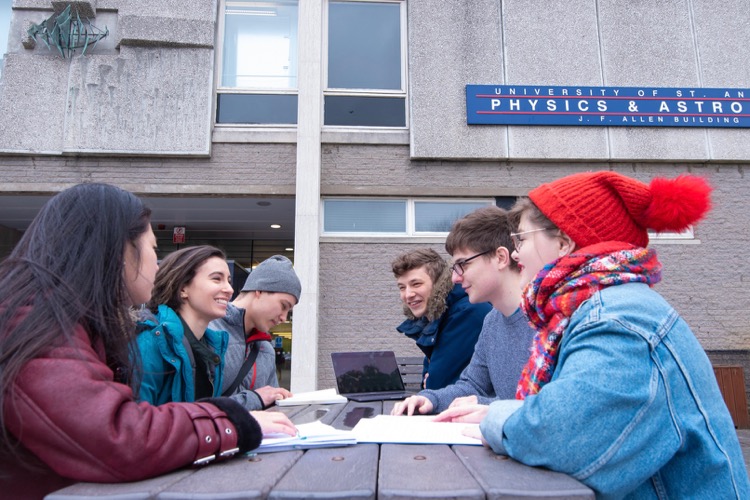Information for new and returning students, August 2021
Welcome!
Welcome back to returning students, and welcome to our entrant students. We look forward to having you all here from the start of the new session.
Students and staff created this welcome and advice video a couple of years ago, featuring a number of students giving their thoughts for entrants. What they said then is still relevant today.
Orientation week runs from Monday 6 September 2021, with introductory classes starting on the Thursday of that week (9 September).
The semester dates can be found online.
The University has an Orientation web page where you can find more information and download a useful Orientation App.
Delivery of teaching and learning
In semester one of 2021-2022, most of the School's lectures will be delivered online. In many modules, this will be complemented by in-person meetings of the class, or parts of the class. That may take the form of small group tutorials (as planned for example in Physics 1A, Physics 2A, and some core third year modules) and/or larger workshops for groups of 16 to 35 students (as planned for example in Physics 1A, Quantum Mechanics 1 and Maths for Physicists).
Physics laboratory-related work will continue, and is planned to be largely in-person in our teaching labs. Astronomy labs will also be largely in-person in our building.
We plan to run in first semester the fourth year labs and the CDT photonics labs. In second semester we plan to run the third year physics lab module in our labs. First and second year physics and astronomy labs are planned to be mostly in-person in both semesters.
Where online lectures are pre-recorded, they will appear on your personalised timetable on particular days at 8am. We do not expect you to watch lectures at 8am, although you are welcome to. In many cases, lecturers will release pre-recorded lectures for a whole week at the start of the week, so that you can manage your own schedule more effectively.
We realise that some students will not yet be able to return to St Andrews. In some cases the studies of these students can be carried out remotely, as part of the University's 'dual delivery' arrangements. Part of our preparations for that has been the development of remote-controlled experiments for our first and second year lab classes. Remote study is not possible for third or fourth year lab modules or the CDT lab module.
Health matters
Please read carefully the University advice on Covid-19 at www.st-andrews.ac.uk/coronavirus/.
Please follow Scottish Government and University guidance on any Covid-19 related restrictions.
Study preparation
Entrant students
The School suggests that students about to start their degree should spend some time looking over the work they have done in physics and mathematics. It is perhaps surprising how rusty some of these skills and knowledge components can get over the course of a summer! It may be particularly useful for entrants to look at their most recent learning about mechanics in both their maths and physics courses, and in particular to see how these tie together.
Returning students
As a returning student you are advised to look over material from modules you have taken over the last year or two. In most cases the content and the skills will be useful in the coming session. Those of you entering level three modules will need to be familiar with what you have done in Physics 2A, 2B and Maths MT2501 and MT2503 (and astrophysics where appropriate).
Students entering Junior Honours are encouraged particularly strongly to revise and practice their mathematics skills, as well as their physics and astronomy. There is a lot of rather sophisticated and new physics in JH, including multidimensional quantum mechanics and electromagnetism. This requires some new mathematical methods, which you will be taught in JH Maths for Physicists. To manage all this in the available time, it is really important that lecturers are able to treat your second-year mathematics, physics, (and astronomy where appropriate) as assumed knowledge for your JH modules.
Those moving into level four will need still to be up to speed with the material that they covered in all of their JH modules, as much of this will be needed for the work in SH modules. Modules of particular relevance may be highlighted in the pre-requisites section of the University Module Catalogue.
Please make sure that you are comfortable with multivariate calculus, linear algebra, Fourier series, solving second-order differential equations, classical and quantum wave equations, quantum states, expectation values, DC circuit theory, Faraday's Law, multiplicity, the Carnot cycle, angular momentum, and many other items from your level two courses and before. The video mini-lectures on Fourier Series and Fourier Transforms accessed from the School's web pages may also be worth a look. Working through past second year exam papers and tutorial sheets again is a good way to test that you remain familiar with the material and really understand it.
If you find that you are having trouble understanding any of the material that you review, please don't hesitate to contact one of the relevant academic staff in the School by email for help - we are happy to provide it.
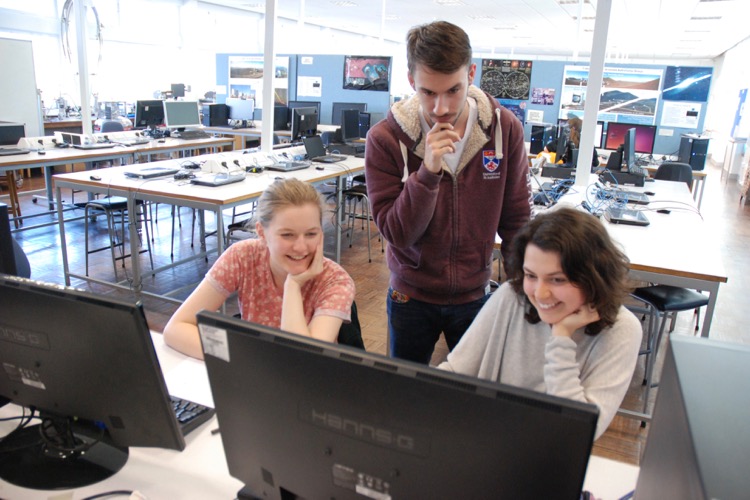
Information sources
The University publishes a Student Handbook, which contains information on University academic matters and regulations. Please do read this: it is well-organised and lays out the rules and things you really need to know.
The School publishes on its web pages two undergraduate handbooks (one for first and second level students, and one for Honours (third to fifth year) students) and handbooks for MSc Astrophysics and the taught component of EngD/PhD Applied Photonics. These documents contain a lot of useful School- and module-specific information, and are also the 'rule books' for your modules in the School. Please do read the relevant handbook carefully. It should be in agreement with the material published by the University in their Student Handbook, Course Catalogue, Programme Requirements and other regulations, but put in the context of your studies in this School.
The 2020-2021 versions may currently be online, but if so these will be updated to the 2021-2022 handbooks in the coming weeks. You are expected to be familiar with and to act on the material in the relevant handbook.
The School also provides guidance documents on module and programme choices for each year group. The University's course catalogue and programme regulations are the formal statements of what is in your degree programme.
- School's Current students page
- Advice on module choices for different years
- School handbooks, booklists, timetables
- Programme Requirements
- Course Catalogue
Recommended books
The reading lists are being updated for the new session, though there are few changes expected from last year. These lists are accessible from the School's Current Students page, or via the University library pages.
For first and second year physics the core textbook will be provided by the University library as an ebook.
Lists of recommended reading for each module are available via the Booklist links for AS or PH modules on the School's web pages.

Pre-advising and module choices
New and returning students are asked to consider their choices of modules, and to register these on the University's pre-advising system. These indications may still easily be changed at advising, but it is useful for both students and staff for the pre-advising process to be completed. It is directly useful to students as they can take time to consider their module options and start some relevant reading over the summer.
Entrant students are required in their year of entry to take modules that can lead to their stated degree intention, but by careful choice of modules they can also leave open routes to other degrees.
By the time people enter year three, following the honours entry process run by Registry, they've usually determined their degree path. There may still be some flexibility after this point, which may be discussed with your Adviser of Studies.
If the online advising system does not permit you to select a 'non-standard' but appropriate set of modules, please discuss this with your Adviser of Studies.
The School's web pages provide links to documents written to help guide students at different stages in their studies on their choice of modules.
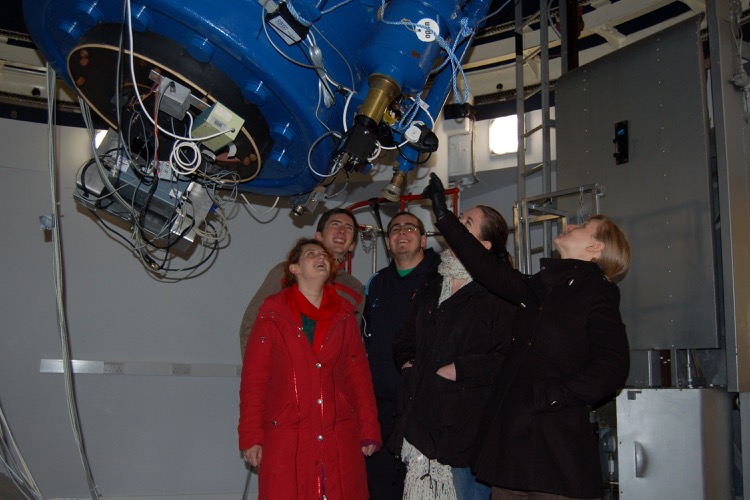
Advising
All students (except in most circumstances those entering fourth or fifth year, and who were studying in St Andrews last semester) will need to meet with their adviser of studies online. Students who are not required to meet with their adviser may by mutual consent agree module choices by email, and are still welcome to meet with their Adviser of Studies if they wish. Advisers may also ask students to meet with them online if they think a discussion would be beneficial. Advising must be completed by the middle of Orientation Week. The name of your Adviser of Studies should be visible to you on your Student Record online. Some pre-honours students will have an adviser who is not a member of our School.
Advisers of Studies in this School for first and second year students are Dr Claudia Cyganowski, Dr Friedrich Koenig, Dr Antje Kohnle, Dr Andreas Rost, and Dr Sebastian Schulz.
Honours students have as their adviser in this School:-
Junior Honours (third year): Dr Dona Cassettari, or Prof Moira Jardine
Senior Honours (fourth year): Prof Natalia Korolkova, or Dr Hamid Ohadi
Fifth year: Dr Charles Baily.
Postgraduate students have as their adviser:-
MSc in Astrophysics: Prof Moira Jardine
CDT EngD/PhD in Photonics: Dr Bruce Sinclair
PhD students: their supervisor.
Year Abroad students should communicate with Dr Charles Baily.
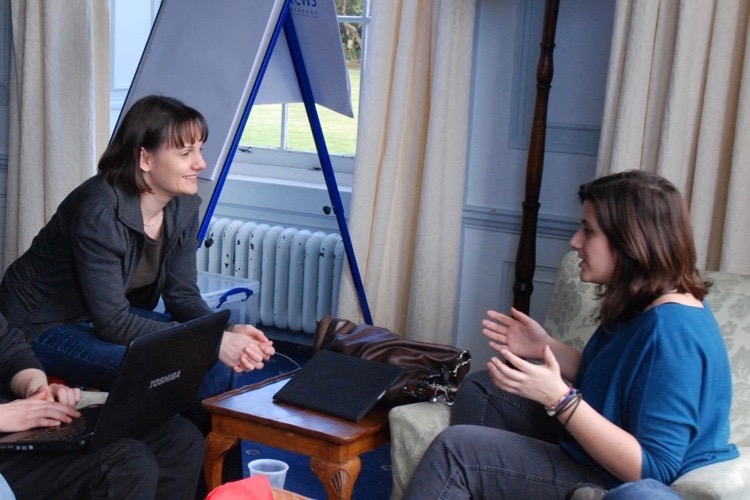
Orientation Week
All of Thursday and Friday of Orientation Week are set aside for the possibility of modules running in their usual lecture slots. Many of your modules will have introductory classes at this time.
This School is organising for new and returning students a number of events, which are listed below. These should complement the events that are being organised by the centre of the University, the Students' Union, and halls of residence. New students are encouraged to make use of these not just to learn more about the University and School, but also to meet other students.
The University has a busy programme for Orientation Week. Some of the events, that the School of Physics and Astronomy is involved in, are provisionally:-
- Monday morning – University Opening Ceremony for science students.
- Monday afternoon – Academic Fair.
- Monday, 2pm – Optional 'drop-in' welcome and discussion with the School's Director of Teaching, School Student President, and other staff and volunteer returning students.
- Monday 3pm – Meet and Greet for MSc Astrophysics students.
- Monday 4pm – Meeting for undergraduate entrants considering level one or level two entry.
- Tuesday, 2-3pm – Meet and Greet in room 230 of the School for the School's entrant Gateway students.
- Tuesday, 3-5ish – Online Welcome event and fun quiz for all entrant students in the School.
All those entering physics and astrophysics programmes for the first time at St Andrews are invited to a set of events aimed to help participants meet each other and staff from the School. There will be a fun quiz where we will gather people into different teams. There will be short presentations by students and staff, and we may manage a short run around the building with a video camera. - Wednesday 10am – Careers and Postgraduate Study Presentation aimed at final and penultimate year physics or astronomy students, given by staff from the Careers Centre and our Director of Postgraduate Studies. Other students in the School are very welcome to attend.
- Thursday 10am – Live online meeting for all Junior Honours (third year) students in the School with Dr Cassettari.
- Thursday and Friday – many modules have class meetings running in the usual time and place. Please see the School's Orientation Week timetable.
- Thursday afternoon – Introductory session for Computational Physics.
- Thursday afternoon – CDT photonics introduction and welcome from 2pm.
- The Student Astronomical and Physical Societies, AstroSoc and PhySoc, and our School President, are also running a number of events.
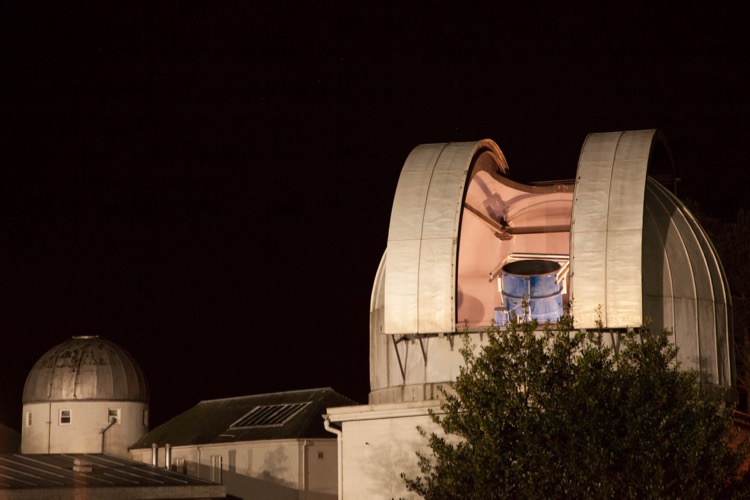
Entrant students
Welcome to the School of Physics and Astronomy, and thank you for choosing to study with us.
If you have any queries before arrival, please contact the School via the methods noted below under the 'Queries' section.
Please consider bringing your physics and maths notes to St Andrews, as they may well be useful for you to look back on. In teaching sessions you may need paper, pen, and calculator. You will also need a good filing system for your notes and handouts. In some instances it will be useful to have a USB memory stick to take data off the School computers. An essential item is some form of diary/planner to keep track of your commitments. Access to a computing device is needed. A laptop or desktop computer is recommended. There are student-access PCs in the PC classroom in the School.
Orientation Week is a good time to meet many new and interesting people. You are encouraged to join the School's welcome event on the Tuesday afternoon to meet other entrant students and some returning students and staff.
Those considering first or second year entry should attend the online event about this on Monday afternoon, where you can meet returning students who will let you know how their choice was for them. Those considering direct entry to level two may wish to do some maths study and revision using resources provided by the School of Mathematics and Statistics (link below). Those joining us from A levels and who have not yet covered complex numbers and/or matrices are particularly recommended to work on those areas.
Please do make good use of other opportunities to get to know people here through some of the many Orientation Week events across the University. Please ensure that you attend on the Thursday or Friday of Orientation Week the enrolment etc sessions in any PH and AS level one and two module that you are taking in first semester.
- Advice on module choices for entrants: For entrants to the School (PDF)
- Mathematics resources for second year entrants (self-enrol Moodle page)

Honours modules
The cores of the programmes form a solid grounding in useful physics. The different flavours of the different programmes then come from the different compulsory modules within them. There is space in most programmes for a number of choice modules that students are advised to choose according to their interests and their plans for the future.
The picture shows students in PH3014 in a recent session at their conference at the Burn House, near Edzell, a few milliseconds before their snowballs reached the photographer.
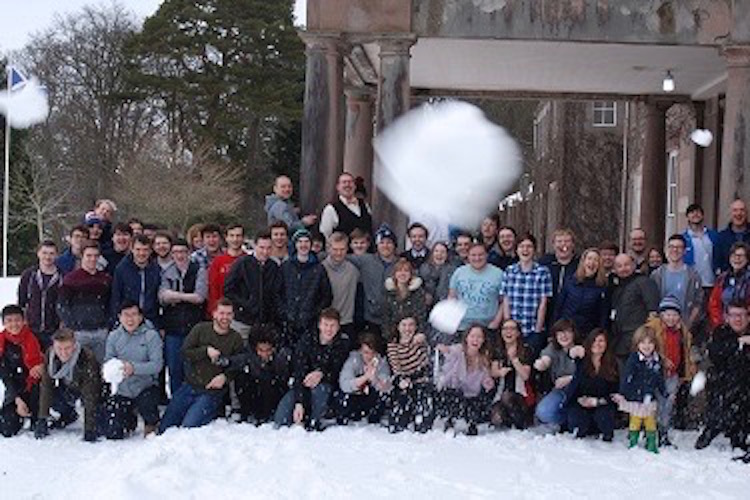
Planning for your future
Returning and new students may wish to contemplate why they are studying for a degree with us. Near the front of the School handbooks the aims of our teaching programme are listed, which are worth a read. Physics and astronomy are topics that are worth studying for interest, for curiosity, and for application.
It was great to celebrate the success of the Physics and Astronomy students at graduation recently, and to learn of the interesting things that many of the graduates are going on to do. On the School's Current Students web page you find links to some of the graduates' career profiles. Even early on it’s worth thinking ahead to this, and certainly by the time you are in Junior Honours (third year), you should be thinking about what you usefully can do to help to where you wish to be.
Students may wish to attend the online Careers and Postgraduate Study event at 10am on the Wednesday of Orientation Week.
A good education in physics and astronomy should provide insights, knowledge, and understanding of the discipline as well as developing a wide range of academic and professional skills and attitudes. Some graduates choose to go on to do a research degree here or elsewhere, some go into physics-based industry immediately or after further study, some go into the financial sector, and others into a range of other careers. There is a careers section on the School's Current Students web page.
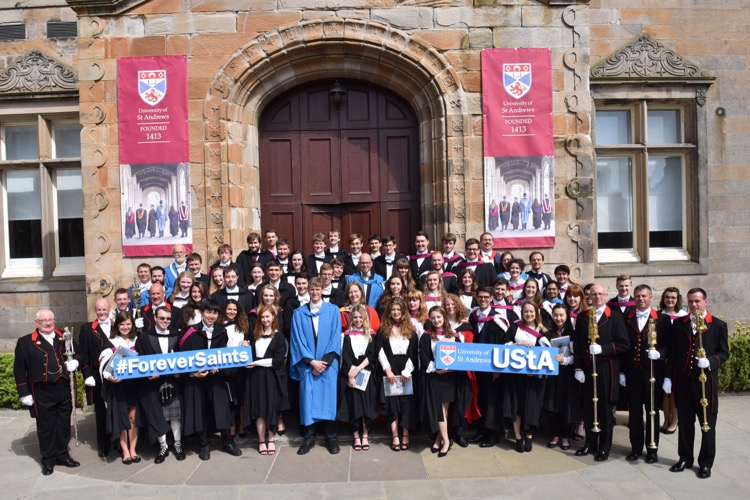
Student representation
The School Student President elected for 2021-2022 is Thomas Rintoul.
He says: "Hello! I'm your School President for academic year 2021-22. My name is Thomas Rintoul and I'm a fourth year astrophysicist from near Falkirk in Central Scotland. My pronouns are he/him. I love space (shock horror being an astro student!), sci-fi and Scottish Country Dancing.
As School President, it's my job to represent you and your peers to the staff in the School, to the Students' Association (the Union) and to the University. I'll work with your class reps and chair the Student-Staff Council this year where student concerns are put to staff directly. Physics and Astronomy at St Andrews is a wonderful place to be. The community in the school is, in my opinion, unparalleled. It's a close-knit, inclusive and supportive place full of interesting people from across the world and whether you're new to the school, or returning after an exceedingly unusual year, I hope you enjoy the community we have here!
You'll often see me around the Physics building and running all sorts of fun events throughout the year. You'll also get my weekly email to let you know about things going on in the department, as well as a picture of the Physics Pet of the Week (submissions are very welcome!!). I hope you have a great time this year which while I can't promise it'll be totally normal, will hopefully have a lot more normality than the past 18 months. I'm always here to help answer any questions, try and solve any problems, or just have a wee chat! Feel free to send me an email at physicspresident@st-andrews.ac.uk, or to gimme a shout if you see me around the building!".
Students in the School will elect representatives to the School's Student-Staff Council early in semester one. This Council is an important part of the running of the School. Class reps work with the School President and members of staff to discuss where things are going well and to make suggestions as to how things may be improved.
This Council, sometimes in association with the student Physical and Astronomical societies, organises some events, including an annual dinner-dance.
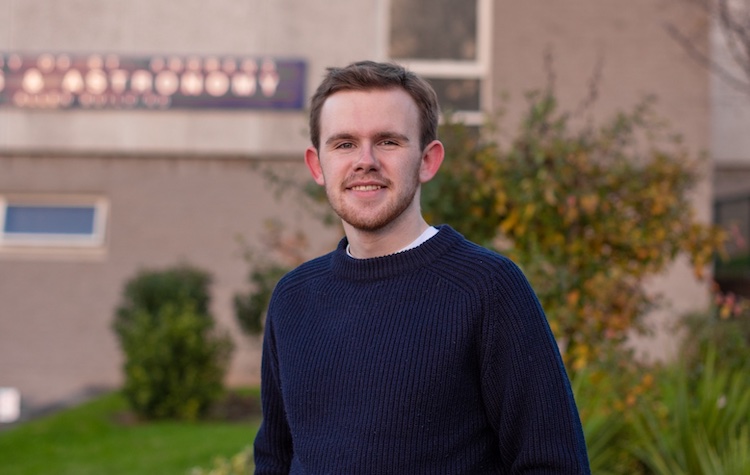
Head of School, School staff
Prof Ian Bonnell, pictured, is our Head of School.
Staff in the School are listed via the links below.
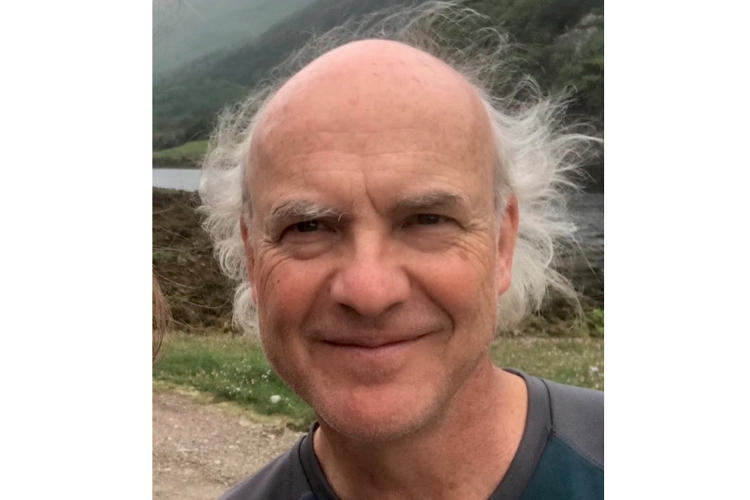
Queries
If you have any queries before arriving in St Andrews, please send an email to physics@st-andrews.ac.uk and this will be passed to the relevant person to answer. Once here, the team in the School Office is available to answer questions.
The School's Director of Teaching (Dr Paul Cruickshank) is happy to answer student queries in advance or during the semester. He can be contacted on physdot@st-andrews.ac.uk.
The University has a tremendous resource in its Advice and Support Centre and the associated Student Services. The team there can provide advice before you arrive, and all through your studies, on physical and mental health, disability, personal relationships, study skills, money matters, bereavement, visas, faith, and many other matters. The School would encourage all students to seek help if they need it. Student Services exists to support students, and nearly all students will use them at some point in their time in St Andrews.
- Advice and Support Centre and associated links
- School web page on who to ask about what
Links
- School web page
- University information for entrant undergraduates
- University information for entrant postgraduates
- Orientation week programme published by the University
First posted PASC 2021 08 20
